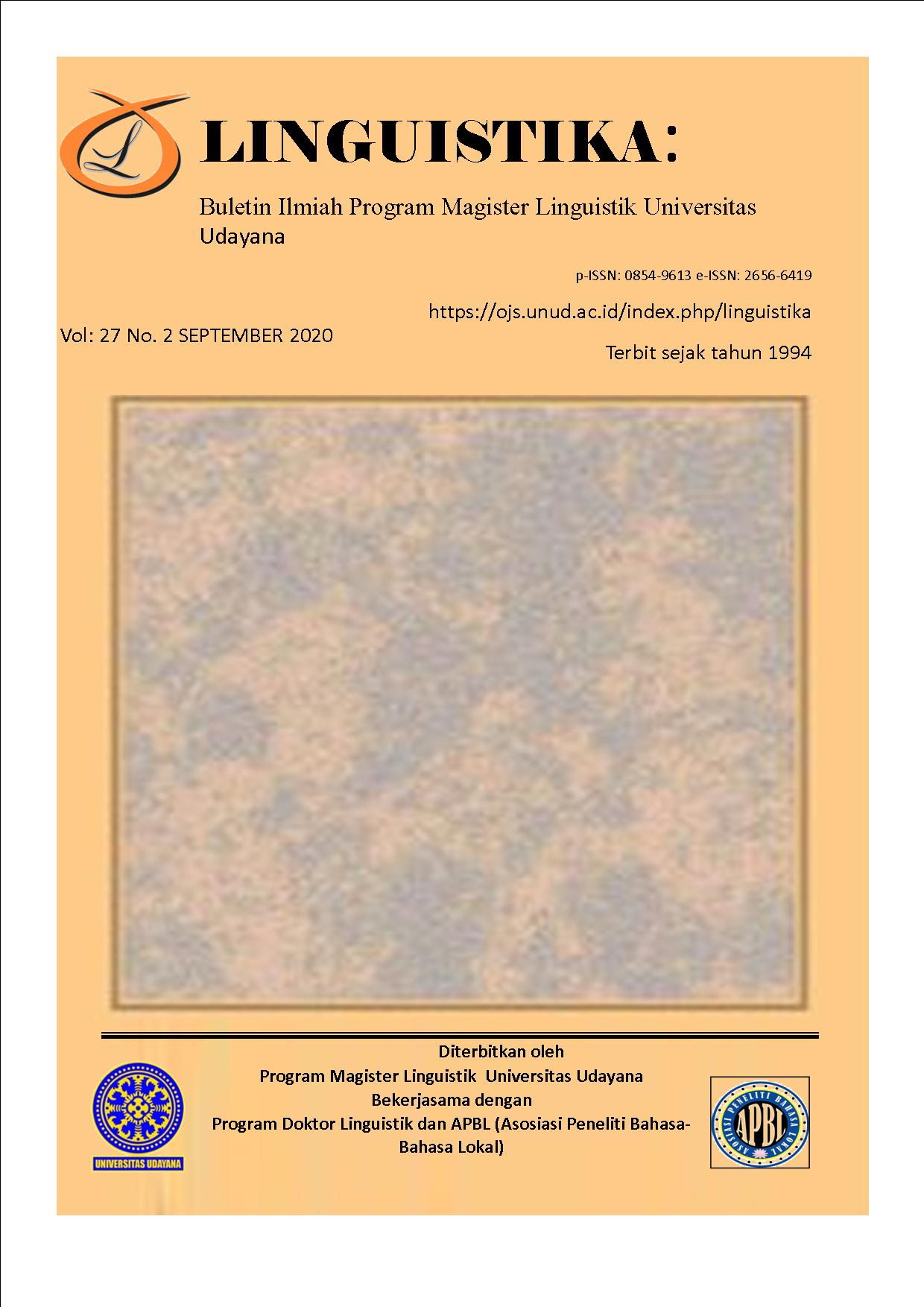Struktur Semantis Verba Psikologi Bahasa Mandailing
Abstract
This study describes the semantic structure of BM's mental predicate in the verb subcategory as the subject of experience and the verb as object of experience. As for the background of this writing, remember that the mental predicate or psychological verb includes a verb that has a very complicated semantic component mapping and requires the right strategy to avoid mistakes in limiting the meaning of the lexical items being analyzed. This study used descriptive qualitative method. Research data in the form of mental verbs sourced from Mandailing Language (BM). Then the data are analyzed using prefreshation techniques to identify lexical items that intuitively include mental predicate. The results showed that the mean of cognition verbs ‘malamun’ and ‘mangangankon’ was formed from THINKING the polishemic TELLING and THINKING the polishemic HAPPENING, the meaning of knowledge verb ‘mamboto’ and ‘ingot’ was formed from KNOWING the polishemic TELLING, the meaning emotion verb ‘mabiar’ an ‘manyolop’ was formed from FEELING polishemic THINKING, the meaning of perception verb ‘manyirik’ and ‘manatap’ was formed from SEEING the polishemis FEELING, SEEING the polishemic TELLING













